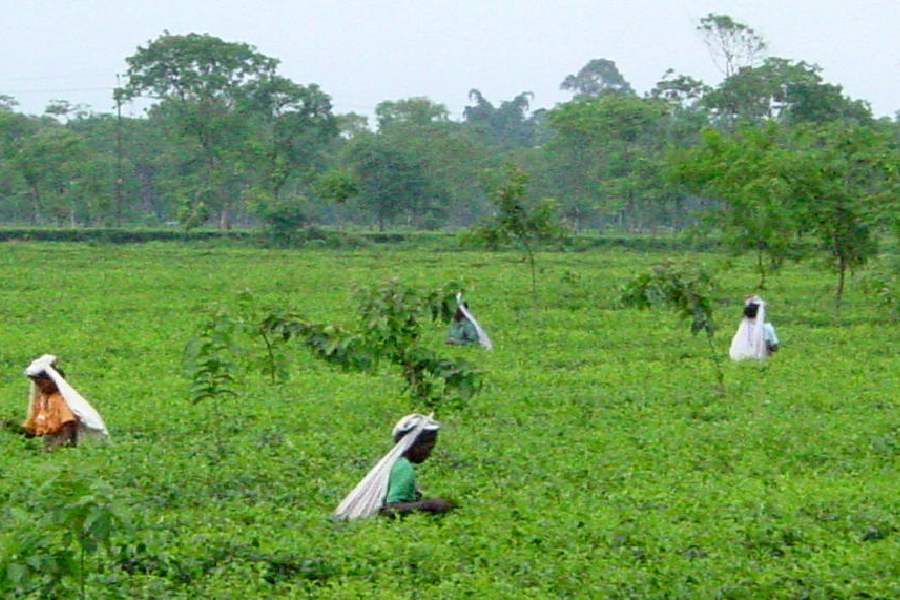The Bengal land and land reforms department has revised the rates of compensation for tea bushes and shade trees (trees which are intermittently planted in tea plantations to provide shade to tea bushes) in case any tea plantation is taken back by the state for government projects.
The new rates will come into force retrospectively from January 1, 2023, sources said.
Those associated with the state’s tea industry have welcomed the decision. The rates were revised last in 2016, they said.
On November 21, Smaraki Mahapatra, the principal secretary of state land and land reforms, refugee, relief and rehabilitation department, notified that the rates had been revised according to the recommendations of the Tea Board of India and the consultations with state finance and forest departments.
“For the plains, the revised rate of compensation is Rs 331 per bush from Rs 135 earlier. For the hills, it is Rs 354 per bush, a jump from Rs 155. For each shade tree, the new rate of compensation is Rs 6,000, up from Rs 4,000. The enhanced rates will come into effect from January 1, 2023, and will be applied on all such land acquisitions which have been awarded on or after this date,” said a source in the department.
In the tea industry, tea companies take land on lease from the state government on which they create plantations, factories, workers’ quarters and other infrastructure. In case of government projects, the state can take back the land from the tea companies.
“For example, a portion of land which was leased out to a tea estate in Bagdogra (on the outskirts of Siliguri) was taken back by the state and handed over to the Airports Authority of India for the expansion of Bagdogra airport. As there were tea bushes and shade trees on the land, the tea company that owns the garden needs to be compensated. This compensation is calculated according to the rates stipulated by the state. Now, these have been revised,” explained a veteran planter based in Siliguri.
The notification also mentioned that the rates would be considered to ascertain the compensation if land is taken for projects like national and state highways, integrated checkposts, border outposts (of the central paramilitary forces like the BSF and the SSB) and airports.
Representatives of tea planters associations said as the state had sought inputs from the tea board on the issue, the board had constituted a committee. The committee deliberated upon the matter and gathered inputs from various sources.
“We stressed the urgency to revise the compensation rates with the greater costs involved in carrying out agricultural practices for maintaining the health and longevity of the tea bushes as loss of tea bushes impinge upon the economic returns of a tea estate,” said Prabir Bhattacharjee, the secretary-general of the Tea Association of India, which was one of the members of the committee constituted by the tea board.











